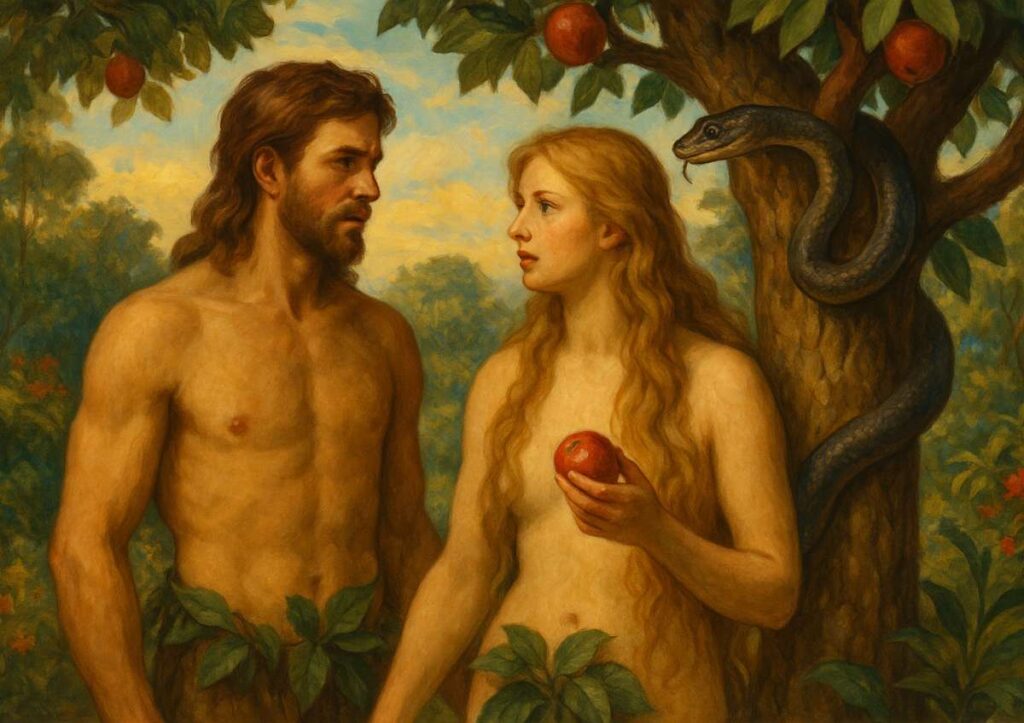
After creating the heavens, the earth, and every living thing, God placed the first man, Adam, in a beautiful garden called Eden. This garden was paradise—lush, vibrant, and filled with everything good. Rivers flowed through it, trees bore delicious fruit, and animals roamed peacefully. In the center of the garden stood two significant trees: the Tree of Life and the Tree of the Knowledge of Good and Evil.
God gave Adam purpose. He was to work the garden and take care of it. But there was also one command: “You may eat from any tree in the garden, but you must not eat from the Tree of the Knowledge of Good and Evil. For when you eat from it, you will certainly die.”
God saw that it wasn’t good for Adam to be alone. So He caused Adam to fall into a deep sleep, took one of his ribs, and formed a woman—Eve. She became his companion, and together they reflected the image and unity of their Creator.
Adam and Eve lived in complete harmony with God, each other, and all of creation. They walked with God in the garden. There was no shame, no fear, and no sin. They were naked and unashamed, fully known and fully loved.
But a serpent appeared—crafty and deceitful. It questioned Eve, twisting God’s words: “Did God really say you must not eat from any tree in the garden?” Eve responded truthfully, but the serpent tempted her further. “You will not surely die,” it hissed. “God knows that when you eat it, your eyes will be opened, and you will be like God, knowing good and evil.”
Eve looked at the tree. The fruit was pleasing to the eye and desirable for gaining wisdom. She took it. She ate it. Then she gave some to Adam, who was with her, and he ate too.
At that moment, their eyes were opened. Shame entered their hearts. They realized they were naked and tried to cover themselves with fig leaves. Guilt, fear, and distance now stood between them and God.
When God came walking in the garden, they hid. God called out, “Where are you?” It wasn’t a question of location—it was a call of love. But sin had changed everything. Adam blamed Eve. Eve blamed the serpent.
God, in His justice, pronounced judgment: the serpent would crawl on its belly and face ultimate defeat; Eve would bear pain in childbirth and struggle in relationships; Adam would toil the ground in hardship. Then, with heavy hearts, God removed them from Eden.
But even in judgment, there was mercy. God made garments for Adam and Eve—covering them, pointing forward to a future covering of sin. And in the curse to the serpent, there was a promise: a descendant of the woman would one day crush the serpent’s head.
This story reminds us that sin breaks our connection with God, but His love pursues us even in our failure. Though humanity fell, God’s plan for redemption had only just begun.